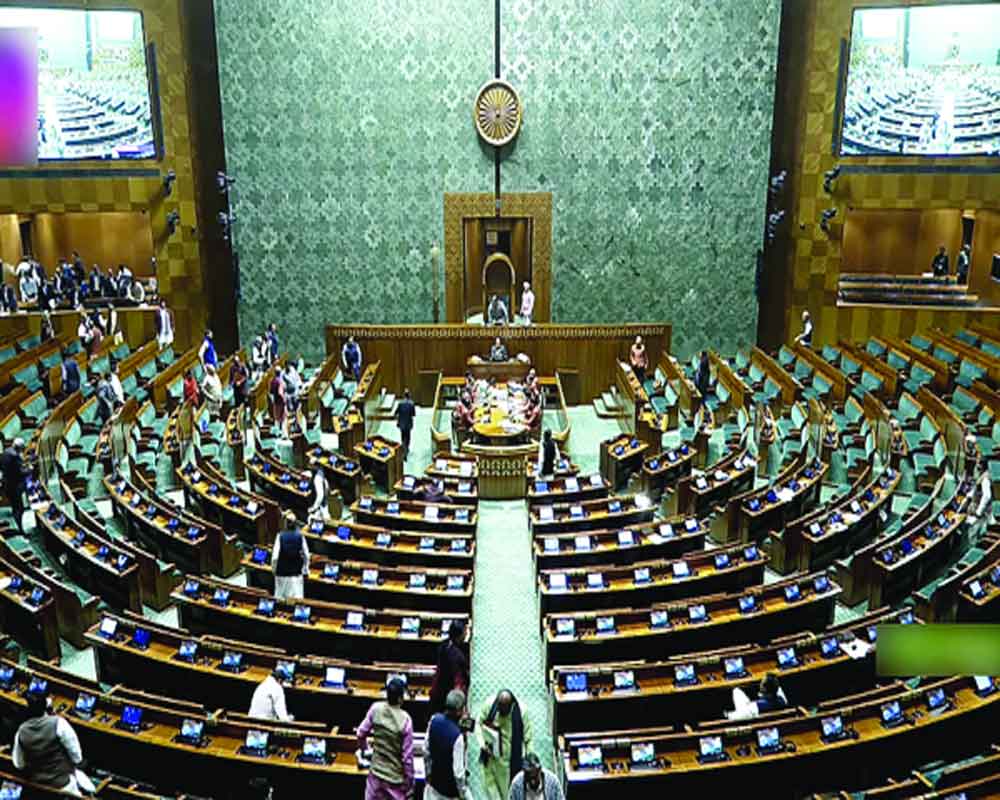With increased tax collection, drafting the Budget becomes smoother, allowing for the announcement of welfare measures and infrastructure allocations in the recent presentation
Budgets will come and go. Most are deficit, though a few are surplus. And the odd one is interim, while most are annual. Others are about continuity and change, as Prime Minister Modi has said. But none are like the budgets of William Pitt the Younger, who became Britain’s Prime Minister at the age of 24, remaining in the same job for 22 years until he died at the post, fighting Napoleon Bonaparte.
Pitt’s budgets were not only surplus, but surplus with a vengeance for, his objective was to build up such a large surplus in the British treasury that the United Kingdom could live off the interest earned on the wealth of the treasury. The British people, in such an eventuality, would not have to pay tax ever again. William Pitt was well on the way to achieving his objective when the Napoleonic wars intervened and Britain had deployed her troops as well as ships to prevent Europe from being overrun by the conquering French emperor.
The best economists have not appreciated the mighty contributions of demonetization, followed by the Goods and Services Tax (GST). This was accompanied by the direct taxpayer and his assessor being freed of the need for a physical interface. An academician seldom pays these taxes on any comparable scale and therefore, it is understandable that he doesn’t quite appreciate the impact of these measures. Only the taxpayer and evader can realize what the ongoing impact of these steps is. Owing to the highly complex chain of modern production processes and the many agencies and actors involved in the chain, there will be a number of payers of taxes at various levels. Their numbers and identities are visible to every functionary of the tax department on the computer. Escaping or evading tax, therefore, has become progressively difficult.
The higher the tax collection, the easier it is for the finance minister to draft the Budget. In the recently presented Budget, it was therefore possible to announce a slew of welfare measures. As well, there are allocations for infrastructural expenditure. The outlay for defence, particularly the production of equipment and technological innovation, is a noteworthy feature of this Budget. If there is any single aspect that stands out, it is the government’s confidence that it has performed more than well enough to win the forthcoming election and that there is no need to either induce or tempt the voters to vote for the party whose government is ruling the country. There need not be any offer of freebies—or ‘revdis’ as the Prime Minister calls them—like free laptops and bicycles, which has been a frequent occurrence in the past.
It is relevant to point out that Gross Domestic Product (GDP) need not be over-stressed; at best, it is reflective of the size of the economy and not its quality. In fact, the basket of total taxes collected is far more important than the total money spent by the State. The total debt of the State, central as well as state governments is more important than many other figures and statistics. Yet, this is seldom talked about and is never a part of the Budget. Quite a few of our states are probably on the verge of bankruptcy. Had they been private entities, they certainly would have been declared insolvent by now.
To take the Indian instance, the country’s treasury was replete with surpluses, earned by supplying war goods and material to Britain during World War II. It did not take long to exhaust them and begin borrowing internationally. Before long, the country’s treasury was on the path of becoming empty, without the Indian public even getting to know about it. It was only when Chandra Shekhar took over as Prime Minister that the country came to know why loads of gold had to be dispatched in bags to London. They were identifiable security for the loans we had sought. The lenders had simply refused to trust the assurances or guarantees of India’s then-political leaders.
Former Reserve Bank of India Governor C. Rangarajan in his book Forks In The Road describes how gold was moved from the RBI’s vault in Bombay and moved to the airport, under close security monitoring. One of the vans transporting the bullion had to stop midway because of a tyre burst and fortunately resumed its journey without any mishap. The shipment of gold brought out loud and clear the extremely critical situation India’s economy had reached, with foreign exchange reserves remaining for only three weeks of imports. It brought home to everyone the enormity of the crisis decades of socialism had sown, forcing to the country to adopt economic reforms and jettison the Nehruvian ways for good.
In contrast to the earlier secrecy among the political class by mutual consent, Finance Minister Nirmala Seetharaman has promised that her government will soon publish a white paper on the economic performance of the country during the last ten years, i.e., her government’s economic performance and on the performance of the previous ten years, i.e., the tenure of the UPA regime. It is a safe bet that this will not only clarify many issues but also wash away many misconceptions—and possibly a few reputations.
(The writer is a well-known columnist, an author and a former member of the Rajya Sabha. The views expressed are personal)


























